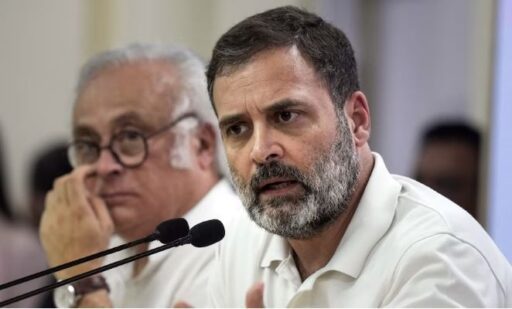
Introduction: When Democracy Took Center Stage
On March 24, 2023, Rahul Gandhi, a prominent leader of the Indian National Congress, was formally disqualified from the Lok Sabha after a Surat court convicted him of criminal defamation. His crime? A 2019 campaign remark that went viral:
“Why do all these thieves share the Modi surname?”
The initial fallout was instant and seismic—public demonstrations, political slogans, and opposition leaders calling it a “black day for Indian democracy.” However, the story took a dramatic turn in August when the Supreme Court stayed the conviction. By August 7, 2023, the Lok Sabha secretariat reinstated him as a Member of Parliament, allowing him to participate in the upcoming elections once again
Background: Setting the Scene
The controversy began at a public rally in 2019, where Gandhi’s comment targeted powerful businessmen sharing the Modi surname. This became the basis for a defamation case. A Surat court found him guilty in 2023 and sentenced him to two years in prison—automatically disqualifying him under Indian law.
This disqualification triggered a legal and political showdown. Several opposition parties challenged the use of criminal defamation — arguing it was weaponized to silence dissent and weaken the opposition’s voice ahead of the 2024 general election
Public and Political Fallout
Opposition parties called for immediate action. A coalition of 14 parties filed a joint petition in the Supreme Court, claiming the ruling violated free speech and democratic principles. In Parliament, Gandhi’s absence created a vacuum that energized election narratives centered on voter suppression, civil liberties, and fair political contestation
Supporters saw his disqualification as a strategic move by the ruling coalition to prevent him from campaigning during a crucial pre-election period. Critics accused the legal system of being complicit, citing the timing and narrow interpretation of defamation laws.
Supreme Court Reversal and Return
Months later, the Supreme Court delivered relief. In August 2023, it stayed the conviction and allowed Gandhi to regain his parliamentary status, reversing the earlier verdict. The move was celebrated across news platforms and social media as a reaffirmation of constitutional norms and due process
Rahul Gandhi returned to Parliament soon after. His reinstatement sparked vigils, social media campaigns, and renewed hope among opposition supporters. Congress hailed it as a victory of the judiciary over executive overreach.
Implications for Democracy and Public Discourse
This episode raised critical questions:
-
Should defamation cases result in political disqualification?
-
Can courts override political metric without political motives?
-
Is India’s political space shrinking under tightened legal enforcement?
Civil society commentators noted that regardless of party lines, the disqualification debate underscored a broader concern: the shrinking zone for political dissent in an increasingly polarized environment.
Strategic Impact on Congress and Opposition
For Congress, Gandhi’s reinstatement revitalized its leadership structure. The controversy gave the INDIA bloc (the opposition coalition) a symbolic narrative: “justice delayed but delivered.” It also intensified scrutiny on the use of investigative agencies in politics.
Furthermore, Gandhi’s absence during key campaign months had disrupted outreach in southern states and among youth constituencies. His return allowed the party to reinvigorate grassroots mobilization in time for polls.
Broader Context: Political Trends of 2023
The episode coincided with other major political shifts:
-
The INDIA alliance formation ahead of the 2024 elections
-
BJP’s sweeping wins in multiple state assembly elections
-
Approval of the Nari Shakti Vandan Act, reserving 33 percent of seats for women in legislatures
-
The rise of multiple ethics scandals including that of TMC’s Mahua Moitra and Rahul’s name case
These dynamics made Gandhi’s disqualification and reinstatement emblematic of broader themes: legitimacy, institutional integrity, and governance challenges in 2023
Conclusion: A Defining Moment in Indian Politics
Rahul Gandhi’s disqualification and reinstatement illustrate the tension between law and political rights in India. Within five months, the event transformed from a public setback to a political re-entry that energized opposition forces and sparked debate about the democratic framework.
More than a legal case, it signified a contest over India’s democratic character, particularly in holding leadership accountable. As the general elections approached in 2024, this episode remains a defining symbol of resistance, institutional checks, and the resilience of democratic norms.